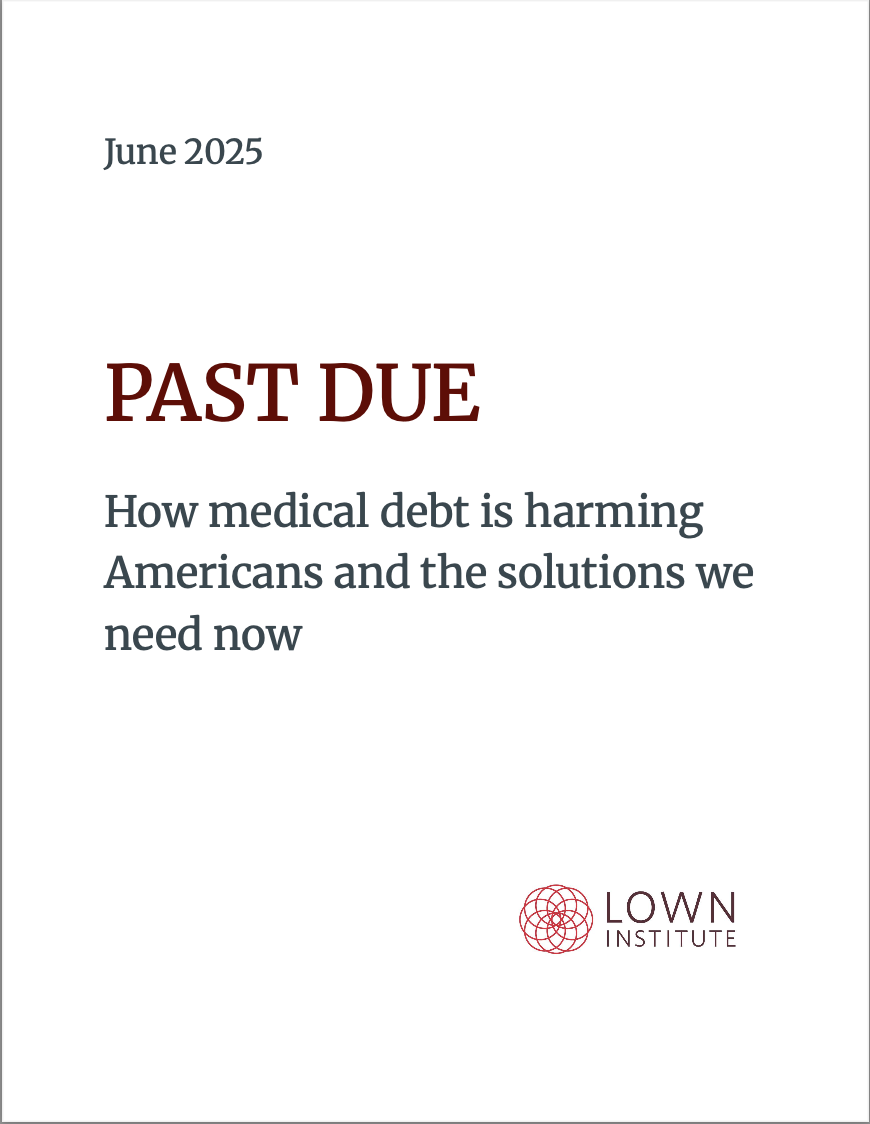Hospital billing and collection practices, a national data set
A two-year project examining the extent to which hospitals send bills to collections, deny care, and sue patients.
The United States faces a significant and persistent issue with medical debt that continues to intensify. Millions of Americans are affected. Even those with relatively good health insurance plans may find themselves grappling with substantial medical bills and accumulation of debt.
One factor contributing to this phenomenon is the varied billing and collection practices of hospitals. Some hospitals file lawsuits against patients or deny care to those with outstanding bills. Hospitals also engage third-party debt collection agencies to recoup outstanding payments, which can lead to damaged credit scores and a cycle of financial hardship for patients already in a vulnerable position due to their health conditions.
Advocates argue for addressing the root causes of high healthcare costs, improving transparency in pricing, and making changes to help patients navigate and negotiate their medical bills. But more data is needed to help inform these and other efforts aimed at reducing the medical debt problem.
Lown’s project involves a systematic review of financial assistance policies and billing and collection practices across 2,500 hospitals in the United States. Initial data are expected to be available in mid-2024 with a full report being issued in 2025. This work builds upon existing research conducted by Noam Levey, senior correspondent, at KFF Health News.
This project is supported through funding from Arnold Ventures.

Medical debt affects as many as 100 million Americans, contributing to financial harm and worse health. Hospitals can alleviate this debt or exacerbate it, depending on how they provide free and discounted care, and how aggressively they collect outstanding medical bills.
The Lown Institute compiled and reviewed data from the financial assistance and collections policies of 2,500 hospitals across the United States, to better understand how these policies differ across hospital type and location. This data is also available for download on the report page.

This report—created in collaboration with a dozen researchers, policy experts, and patient advocates—provides an overview of research on prevalence, impact, and drivers of medical debt, finishing with policy recommendations to address both the downstream problem of medical debt and the systemic issues behind the problem.

On May 15th in Washington, DC, the Lown Institute brought together advocates, researchers, and hospital leadership to discuss one of the most pressing issues facing the American healthcare system: Medical debt.
This two-hour webinar featured multiple panel discussions addressing the growing problem of medical debt in the United States. This was a must attend event for policymakers, journalists, thought leaders, and anyone else interested in getting up to speed on the scope of the problem, drivers, and possible solutions–by hearing directly from those most active in this space.
Our data, which is updated on an ongoing basis, is available for download on the report page.
Project Team
Vikas Saini, MD, president; Kelsey Chalmers, PhD, director of research; Paula Smith, MPH, senior data scientist; Carissa Fu, chief of staff; Anna Back, MPH, healthcare data research assistant; Vivien Talon, healthcare data research assistant; Kassandra Jean-Marie, healthcare data research assistant; Stephanie Serrato, MPH, healthcare data research assistant.
Inquiries
If you have questions about the project, contact Carissa Fu, chief of staff, at cfu@lowninstitute.org.
Media inquiries should be directed to Aaron Toleos, vp of communications, at atoleos@lowninstitute.org.
Related Blog Posts
Should hospitals be judged by their billing practices?
Which hospitals are suing patients? Investigation reveals hospital billing practices
Medical debt is a crisis. Is debt forgiveness the answer?
Surprise billing — another potential risk of overuse
Are Hospitals Driving Medical Debt?
How to stop hospitals suing patients
Is there an “equitable” way to sue patients for medical bills?
Related News
They Were Entitled to Free Care. Hospitals Hounded Them to Pay. NY Times
In This Oklahoma Town, Most Everyone Knows Someone Who’s Been Sued by the Hospital. KFF Health News
After Washington state lawsuit, Providence health system erases or refunds $158M in medical bills. The Associated Press
Medical Debt—An Iatrogenic Epidemic With Mortal Consequences. JAMA Network
Blockbuster Deal Will Wipe Out $30 Billion in Medical Debt. Even Backers Say It’s Not Enough. KFF Health News
